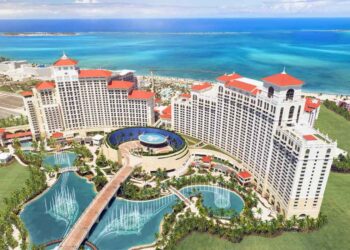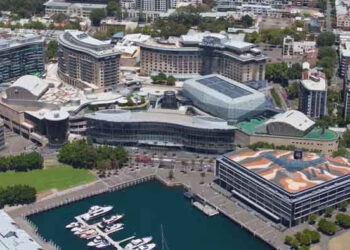Macau’s gaming slump contributed to a 6.6% decline in net revenue for Las Vegas Sands in the quarter ended 31st December.
The four resorts operated by the casino giant’s Sands China subsidiary posted a 16.2% drop in net revenue to US$2.12 billion.
Companywide revenue came in at $3.42 billion.
Chairman and CEO Sheldon Adelson told analysts that Macau is moving beyond gaming, an aspect the company realized early on, he said, adding that it will help it weather any gaming downturn.
“While it has become fashionable for everyone to talk about Macau’s diversification from gaming, we have consistently been delivering on all aspects of diversification over the past decade,” he remarked.
Macau’s casinos have suffered since June, mainly the result of a Chinese government crackdown on corruption, illicit capital outflows and transit visa abuses, which combined have sent high-roller play plummeting, and with it the sector that traditionally generates two-thirds of the market’s world-leading revenues. The junket operators and promoters that recruit VIPs and provide them credit also have come under increased scrutiny.
Macau dominated LVS’s fourth-quarter conference call, not surprisingly since it generates the vast majority of the Las Vegas-based company’s revenue and earnings.
Overall, though, the quarter exceeded analysts’ expectations. The company reported a 25% increase in net income year on year to $721.3 million, on a 10.9% increase in adjusted property EBITDA of $1.35 billion, which surpassed consensus forecast of $1.23 billion
“In Macau, the moderation was well telegraphed and property margins held up better than expected despite the top-line pressures in market,” said Union Gaming Research in a client note.
Corporate earnings per share were 90 cents, a 28.6% increase.
Revenue from The Venetian and Palazzo on the Las Vegas Strip dipped 6%. But the quarter was a banner one for the company’s Marina Bay Sands megaresort in Singapore, which reported a 27.1% increase in overall revenue and a doubling of EBITDA to a record $518.5 million on a 17% increase from the gaming side to $803 million, prompting LVS President Rob Goldstein to hail MBS as “the most profitable building in the world,” according to a Bloomberg report.
Analysts were more skeptical, however. “If you normalize for luck and you normalize for the tax benefits [MBS received a $90.1 million property tax reassessment in the fourth quarter] the growth in Singapore is really more like 9%, a bit more reasonable,” as Michael Paladino, senior director of gaming, lodging and leisure at Fitch Ratings, told CNBC.
“What really happened is they got lucky in the quarter,” said Somesh Agarwal, a gaming analyst at Macquarie. VIP gaming volumes actually declined 27%, he noted, but revenue was up because of an abnormally high win rate.






























